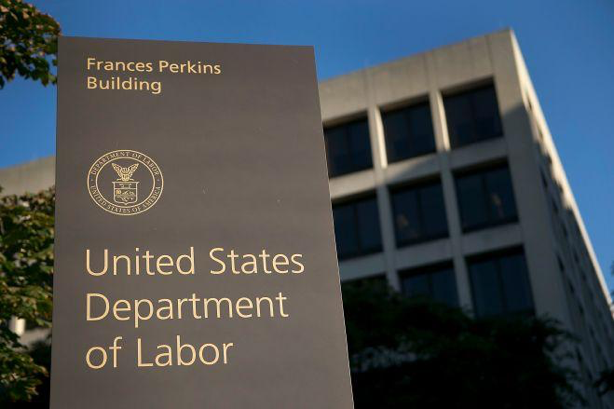Enjoy a Significant Added Level of Protection
September 2016

As Certified Public Accounts (CPAs), I and my fellow practicing professionals are bound by the American Institute of Certified Public Accountants (AICPA) Professional Code of Conduct. Expressly stated in that code are standards of client care that are analogous to a fiduciary relationship. While an accountant is not normally considered to be a fiduciary to clients, CPAs are held to standards of conduct that include objectivity, integrity, free of conflicts of interest and truthfulness … in short, always acting in clients’ best interests.

Now the U.S. Department of Labor (DOL) mandates similar standards of conduct for financial advisors who manage or provide investment advice on retirement accounts, i.e., act in their clients’ best interests. Six years in the making, the new “fiduciary rule” is set to go into effect next April.
What prompted DOL involvement? Historically, the role of the DOL as it relates to retirement matters was in its responsibilities under the Employee Retirement Security Act (ERISA). ERISA is a federal law that establishes minimum standards for pension plans in private industry.
With an aging Boomer population currently entering retirement … and the Millennials (largest single group of Americans) visible on the horizon to follow suit … the U.S. government is increasingly concerned with Americans’ ability to sustain an acceptable standard of living, without total dependency on government funding. Social Security will prove insufficient for most retirees.
So the expanded role of the DOL now includes oversight of standards of conduct for financial advisors who manage or provide investment advice on retirement accounts. The objective is to further bolster retirement investors as they accumulate their nest eggs.
Proponents hail the new rule as one of the most important investor protections in decades. That said, many consumers may lack understanding and awareness of the rule’s effect as it applies to them and the value of their retirement nest egg. The purpose of this article is to talk through the key elements of the fiduciary rule and what you should know and do when working with financial advisors.



Which Advisors Are Subject to the Fiduciary Rule?
All financial advisors, whether fee-only or compensated by commissions, are subject to the same standards. The DOL definition includes brokers, registered investment advisors (RIAs), insurance agents and fee-only advisors. The rule also applies to advisors who counsel workers to roll over their funds from an employer sponsored plan to an IRA.
In days past, commission-based advisors were required only to adhere to a “suitability standard”. That translates to providing investment options suitable to the client’s needs – often linked with high advisory fees, frequently transparent to the client.
So advisors will be required to scrupulously abide by the following to ensure the best interests of every client are satisfied.
• Alert customers to their right to complete information on fees/commissions charged.
• Provide written or website sources of fully disclosed, specific compensation details.
• Charge only “reasonable” compensation.
• Disclose any conflicts of interest.
Note: Advisors can avoid all of these mandates if they strictly advise solely on non-retirement plan investments.

What Prompted Adoption of the Fiduciary Rule
As with most significant rule changes, there are a myriad of reasons why a six year effort was initiated to develop and mandate the fiduciary rule. Let’s visit two that were meaningful drivers:
1. Reduced net retirement funding.
2. Concern for advisors acting in the client’s best interest.
Reduced Net Retirement Funding: The DOL estimates that high fees and commission reduce the net returns on retirement accounts by one percent per year. Given the magic of compound interest, that can mean significant shortfalls in retirement financial goals.
Want to do a quick calculation to see the potential negative effect? Use the Rule of 72, i.e. divide the number 72 by whatever interest rate you choose. The result will be the number of years it takes for a lump sum investment to double.
In 2015, the President’s Council of Economic Advisors put the potential economic loss to retirement funding in perspective. The analysis indicates that unreasonable commissions/fees could cause the loss of 17% of the retirement account value over 20 years.

Concern for Advisors Acting in the Client’s Best Interest: By no means is the intent of this article to indict the investment advisory community with blanket disregard for the best interest of their clients. That said, one contributing factor to the fiduciary rule may be attributed to high turnover, particularly in the ranks of advisors compensated solely by commissions. That puts the burden on retirement investors to seek alternative investment counsel which entails a renewed effort to build trust.
As Harvard psychologist, Amy Cuddy, puts it, in her new book, "Presence," People quickly answer two questions when they meet a person for the first time:
• Can I trust this person?
• Can I respect this person?
Psychologists refer to these dimensions as warmth and competence, respectively, and ideally a new advisor wants to be perceived as having both. Interestingly, Cuddy says that most people believe that competence is the more important factor. But while competence is highly valued, Cuddy says that it is evaluated only after trust is established.
Establishing trust, particularly when retirement security is the goal, may prove to be a time-consuming, difficult process. The new advisor must be trusted to act in the client’s best interest, not with the sole intent to make a sale.
What Should Retirement Investors Anticipate
Opponents of the new rule say the cost of advice will rise and that there will be fewer advisors serving an ever-growing aging population who need help. Time will tell, but under the new rule, the cost of advice will be fully disclosed and reasonable. Therefore, competition in the marketplace will dictate what investors deem “reasonable” … with additional oversight by the DOL.
There are three additional expected changes in the investment advisor profession.
1. Robo-advisors may be the automated, technology based alternative for investors that are not currently being served by advisors.
2. Brokerage firms will likely launch more fee-based offerings and no/low-load financial products.
3. Advisors whose living is earned without regard to clients’ best interests will seek alternative employment.
Back to CPAs for a Moment
As stated early-on in this article, CPAs are bound by the AICPA Professional Code of Conduct which clearly defines serving clients’ best interests. So, doing so is just part of the daily procedures as CPAs work with each individual client.
One relatively recent development is worth a comment. Some CPAs have opted to become licensed to sell investment/insurance products to their clients. The fiduciary rule creates another level of oversight. However, since most CPAs act in accord with the AICPA Code, they probably won’t see much if any change in their professional activities.
If any of the foregoing seems unclear as to how it applies to your specific circumstances, please keep in mind that we can help. Give us a call or drop an email. We’ll respond immediately.
Note: Blair + Assoc practice is providing tax and accounting services and advice to individuals and businesses. We have made a conscious decision not to be licensed to offer investment or insurance products. At your request, we stand ready to offer referrals to capable investment advisors.

